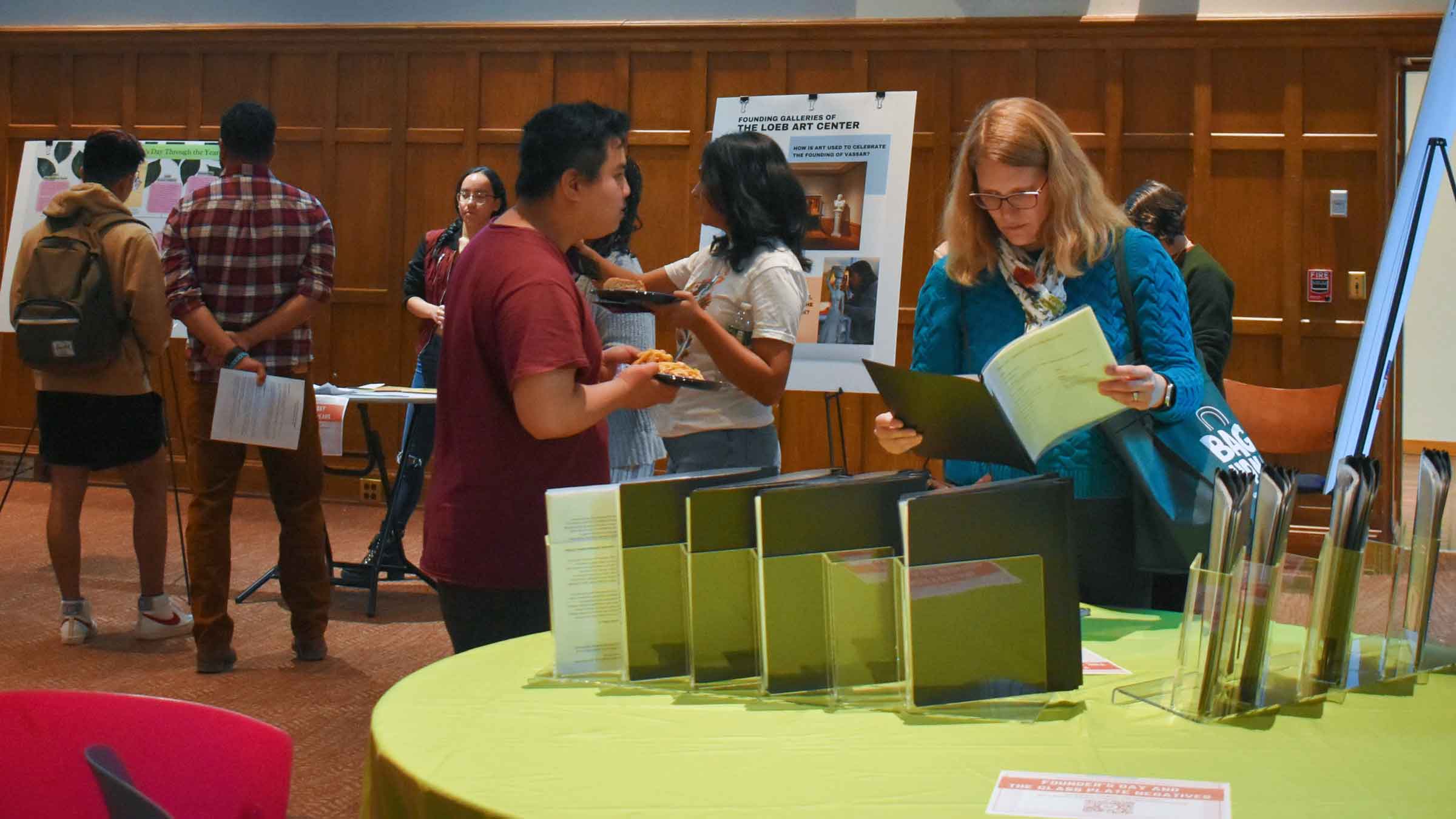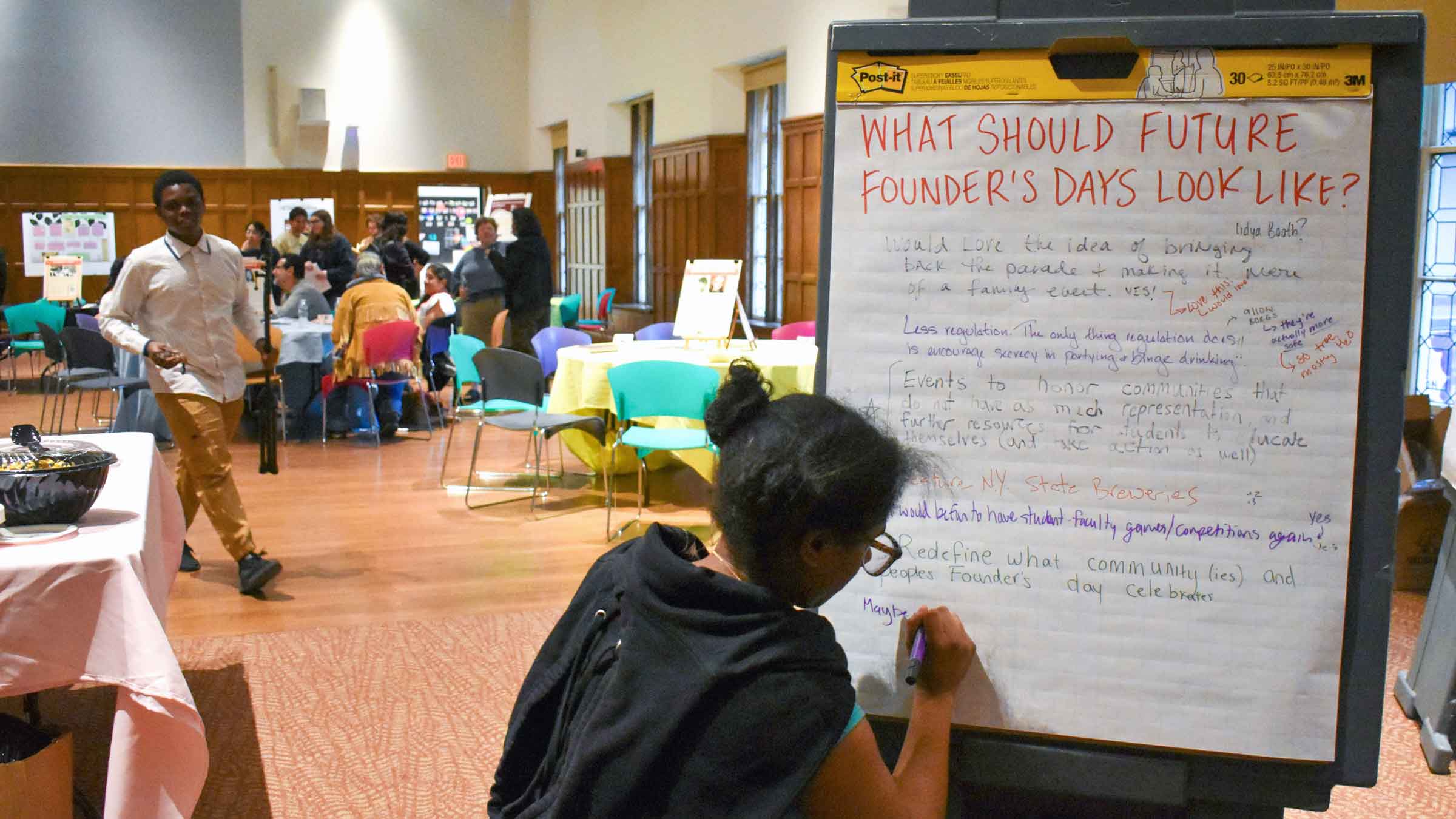Complicating Founder’s Day
Founder’s Day, a memorial to Matthew Vassar held on the Saturday closest to his April 29 birthday, has been a part of Vassar’s social fabric since it began as a surprise party for the founder in 1866. Originally a somewhat solemn occasion, it morphed into a fun-filled event by the early 20th century.
The College recently has begun to confront the starkly racist and xenophobic caricatures that were often a part of the celebration after Vassar librarians revealed a discovery of more than 100 glass plates of old photographs that show students, faculty, and administrators in blackface and other forms of racist masquerade.

Three days before this year’s Founder’s Day, the Engaged Pluralism Race and Racism in Historical Collections Working Group hosted an event titled “Complicating Founder’s Day” that challenged students, faculty, and administrators to contemplate this aspect of Vassar’s history. About 100 students, faculty and staff attended the event in the Villard Room.
Brian Scannell ’23, co-chair of the Working Group, said he was pleased with the turnout for the event. “There has been frustration among many students that these images have been hidden from the telling of Vassar’s history for so long,” Scannell said, “but the turnout for this event demonstrates that students really want to engage in discussions about this and to find a way to look at this history critically.
Jonathon Kahn, Engaged Pluralism Director and Professor of Religion, said the event emerged from the work of the Race and Racism in the Historical Collections Working Group. Two of the co-chairs of that group, librarians Deb Bucher and Melanie Maksin, taught a fall of 2022 class with him that focused on images of racial masquerade at Founder’s Days in the early 20th century. “I’m sure Deb and Melanie’s experience of teaching that class informed the Working Group’s design of this event. It’s a great example of how the efforts of Engaged Pluralism move across the campus, from the working groups, to the classroom and then back again to the working groups,” Kahn said.

In addition to raising questions about racism among Vassar constituents in the past, attendees were also asked to learn about the positive contributions of others in Vassar’s history who might be considered “founders” themselves. One such role model was Vassar’s first Asian student, Sutematsu Yamakawa Oyama of the Class of 1878, who later helped to establish the Women’s University of Tokyo and who worked to improve conditions of Japanese immigrants to the United States through the Japanese Red Cross. Other “founders” included four students—Indiana Garcia ’11, Kleaver Cruz ’11, Jacquie Butler ’09, and Rachel Tetteh ’11—and Assistant Professor of Political Science Zachariah Mampilly, who helped to establish Vassar’s First-generation, Low Income (FLI) Program (formerly the Transitions Program) for first-generation college students; long-time Vassar administrator Edward Pittman ’82, who founded the ALANA Cultural Center (recently re-named the Jeh Vincent Johnson ALANA Cultural Center), and Bryan Ruby ’19, the first openly gay professional baseball player, who co-founded Proud to Be in Baseball, an advocacy organization whose members appear at baseball teams’ Pride Nights and other events and provide advice and support to high school, college, and professional athletes.
Two students who attended the workshop said they were grateful that the College was confronting this aspect of its history. “I’m glad the complete history of Vassar is finally being told,” said Sitota Blomquist ’26. “The fact that racism was present here didn’t surprise me, but it was disturbing to see the actual photos of people in blackface. This event made me want to learn more about this aspect of Vassar’s history.”
Isabella Zumbolo ’26 agreed. “I now have a deeper understanding of Vassar’s history,” Zumbolo said. “I have a true appreciation of the pioneers who have made contributions despite its history of racism and xenophobia.”